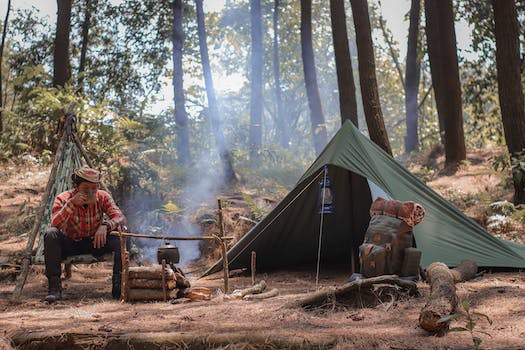There are two avenues that we frequently find ourselves divided between when it comes to sating our wanderlust: adventure and travel. Even if at first look they could appear to be similar, they differ greatly from one another. Pushing limits, looking for exhilarating experiences, and accepting the unknown are all parts of adventure. Travel, on the other hand, is more concerned with experiencing a new culture, seeing new places, and making lifelong memories. To assist you in selecting your course and setting out on a trip that is in line with your goals and objectives, we will go into greater detail about these distinctions in this post.
- 1. Introduction
- 1.1. Defining Adventure and Travel
- 1.2. Importance of Adventure and Travel
- 1.3. Differences Between Adventure and Travel
- 1.4. Benefits of Adventure and Travel
- 1.5. Choosing Between Adventure and Travel
- 2. Adventure
- 2.1. Thrill and Excitement
- 2.2. Challenging Limits
- 2.3. Exploring the Unknown
- 2.4. Adrenaline Rush
- 2.5. Pushing Comfort Zones
- 3. Travel
- 3.1. Cultural Immersion
- 3.2. Exploring New Places
- 3.3. Relaxation and Recreation
- 3.4. Learning Opportunities
- 3.5. Connecting with Locals
1. Introduction
Though they frequently go hand in hand, adventure and travel are not always the same thing. Although they both entail traveling to new locations and trying new activities, they differ greatly from one another. Selecting the path that best fits your preferences and aspirations can be made easier by being aware of these distinctions.
Traveling is usually connected with exploring new places, be it a city, a beach, or a historical landmark. It entails scheduling travel, making hotel reservations, and visiting well-known tourist destinations. Comfort, convenience, and relaxation are typically sought for by travelers who want to decompress and revitalize themselves.
Conversely, adventure is more about pushing boundaries and increasing your level of discomfort. It entails going for exhilarating experiences, partaking in sports like skydiving, scuba diving, or mountaineering, and absorbing oneself in many cultures. The want to push oneself, embrace the unknown, and make lifelong experiences is often what motivates adventure seekers.
Adventure and travel both have advantages and can lead to enlightening encounters. Your objectives, hobbies, and personal tastes will determine which option is best for you. While some people may enjoy the familiarity and comfort of travel, others may find the excitement and novelty of new experiences to be highly stimulating. In the end, it all comes down to striking a balance that lets you experience the world in a way that speaks to you.
We will go more deeply into the distinctions between adventure and travel in this piece, looking at a variety of topics including motives, activities, and mindset. By the end, you’ll know more clearly which course best suits your individual goals and aspirations.
1.1. Defining Adventure and Travel
Although the terms “adventure” and “travel” are sometimes used interchangeably, they have different connotations. Their methods and goals are different, even though they both entail discovery and novel experiences. It can be helpful to know the differences between adventure and travel so that you can select the route that best suits your goals and aspirations.
Adventure is the pursuit of exciting, audacious, and occasionally hazardous endeavors. It entails rising over your comfort zone and welcoming the unknowable. Adventure seekers are motivated by the urge to test limits, confront personal limitations, and pursue exhilarating experiences. This could involve extreme sports, skydiving, bungee jumping, and mountain climbing.
However, traveling is more about really going to new locations and allowing oneself to become fully immersed in the local customs and surroundings. It is centered on learning new things, expanding one’s horizons, and exploring. Travelers want to learn, make connections with people in the area, and comprehend various lifestyles. It could entail going to historical locations, dining locally, or taking part in cultural events.
Traveling is typically a part of adventure, but not every trip is exciting. In the same way, not every adventure calls for long distance travel. It’s the intention and thinking that make all the difference. Whereas travel is about discovery and immersion in another culture, adventure is about pushing boundaries and seeking thrills.
To assist you in selecting the path that best fits you, we will go more into the distinctions between adventure and travel in the upcoming parts.
1.2. Importance of Adventure and Travel
Traveling and having adventures are two activities that have the capacity to improve and change our life. They both present special chances for development, self-discovery, and a better comprehension of the world we live in. Although the terms “adventure” and “travel” are frequently used synonymously, they are two separate ideas with unique experiences and advantages.
Pushing limits, taking chances, and moving outside of our comfort zones are all essential components of adventure. It’s about taking part in exciting activities and letting go of what’s unknown. Through adventure, we can push our physical and mental boundaries, feel accomplished, and test our limits. It gives you a potentially addicting burst of exhilaration and energy.
However, travel is also about broadening our horizons, seeing new cultures, and discovering new places. It entails traveling to unknown places, sampling local cuisine, and interacting with people from various backgrounds. Traveling allows us to see the world from a wider angle, discover new customs, and become more appreciative of its natural beauty.
Travel and adventure each have advantages of their own, and which one to choose will rely on personal preferences and objectives. Some people seek out heart-pounding activities like skydiving, rock climbing, or bungee jumping because they are drawn to the excitement and challenge of adventure. Others go for leisurely journeys to historic sites, scenic locales, or far-off places because they like the cultural immersion and relaxation that travel affords.
All things considered, traveling or experiencing adventure both have the capacity to provide lifelong memories, encourage personal development, and awe-inspiring encounters. They provide us the freedom to abandon our habits, venture beyond our comfort zones, and embrace the uncharted. Thus, taking off on an adventure or a trip can transform your life, regardless of your preference for extreme sports or cultural immersion.
1.3. Differences Between Adventure and Travel
While adventure and travel are closely connected ideas that frequently overlap, they are nevertheless very different from one another. Travel covers a wider variety of experiences, whereas adventure is more concentrated on exhilarating and heart-pounding activities, even though both entail discovering new places and doing new things.
Adventure usually means taking chances and looking for thrilling and difficult pursuits like skydiving, white-water rafting, or mountain climbing. In order to have a sense of excitement and accomplishment, it’s about pushing yourself beyond your comfort zone.
Conversely, travel is about expanding your horizons, learning about new cultures, and experiencing new environments. It can entail taking in the splendor of nature, dining at regional restaurants, or touring historical places. You can learn more about the globe and acquire a greater comprehension of its customs and traditions by traveling.
Even while travel frequently involves adventure, not every travel encounter is thrilling. Traveling can be calming, instructive, or even spiritual, based on the traveler’s goals and interests. Conversely, adventure is typically motivated by a need for thrills and the joy of overcoming obstacles.
Your own hobbies and tastes ultimately determine which option—adventure or travel—you should choose. While some people choose a more relaxed and culturally immersive vacation experience, others are driven to the adrenaline rush of adventure activities. Regardless of the route you take, travel and adventure both present special chances for introspection, personal development, and life-long memories.
1.4. Benefits of Adventure and Travel
Travel and adventure have many advantages that can significantly improve your life. Whether you like to travel to new places or engage in heart-pounding activities, adventure and travel provide singular experiences that can extend your perspective and enhance your general wellbeing.
The pleasure and excitement that come with adventure is one of its main advantages. Exhilarating pursuits like skydiving, bungee jumping, or mountaineering can provide you with a tremendous sense of success and an adrenaline rush. It makes you step outside of your comfort zone and helps you face your worries, which builds resilience and self-confidence.
However, traveling enables you to see many cultures firsthand and discover uncharted territory. You become aware of fresh viewpoints, customs, and lifestyles as a result. By exposing you to a variety of people, cultures, languages, and landscapes, travel helps you develop a deeper awareness and respect for the world we live in.
Furthermore, there are chances for personal development and self-discovery offered by both adventure and travel. They enable you to take a break from your regular schedule, escape monotony, and uncover your own interests and hobbies. You can get a deeper awareness of who you are, what you’re capable of, and what you want by trying new things and pushing your boundaries.
Traveling and adventure also improve your physical and emotional health. Adventure activities have the power to improve your mood, lower your stress level, and make you happier all around. Similar to this, travel has the potential to reduce stress, enhance mental clarity, and encourage relaxation. Rejuvenating your mind and body can be achieved through connecting with nature, discovering new places, and removing yourself from technology.
To sum up, there are a lot of advantages to both travel and adventure that can greatly improve your quality of life. Whether you decide to travel to new places or take on risky activities, these experiences can have a profound effect on you and help to define who you are as a person.
1.5. Choosing Between Adventure and Travel
Making the choice between adventure and travel when starting a new journey can frequently be difficult. Both solutions satisfy different tastes and needs, yet they both provide interesting experiences and chances for discovery. You can choose the route that best fits your interests by being aware of the distinctions between adventure and travel.
As the name suggests, adventure is all about searching for exhilarating and heart-pounding events. It includes things like skydiving, rock climbing, bungee leaping, and white-water rafting. Athletes embrace the unknown, push their boundaries, look for new challenges, and chase after the feeling of excitement.
However, the main goals of travel are to experience new cultures, immerse oneself in unfamiliar settings, and broaden one’s perspective on the world. Discovering the background, customs, and traditions of the destinations they visit is typically a goal of tourists. They could decide to go to famous sites, museums, and experience the local way of life.
Travel and adventure each have advantages of their own, and the choice ultimately comes down to personal taste. Adventure may be the best option for you if you prefer pushing yourself beyond of your comfort zone, appreciate taking chances, and thrive on excitement. However, travel may appeal more to you if you value learning, expanding your horizons, and engaging in cultural exchange.
We will go into greater detail about the distinctions between adventure and travel in this post so you can see what each option includes. We hope that by the time this is all over, you will know more clearly which route to choose on your future adventure.
2. Adventure
Although the terms “adventure” and “travel” are frequently used synonymously, they have important distinctions that might guide your decision. A more audacious and exhilarating encounter, where you venture beyond your comfort zone and partake in activities that challenge your boundaries, is referred to as an adventure. It is accepting uncertainty, taking chances, and looking for exhilarating experiences that are one-of-a-kind. However, the term “travel” is more general and covers a variety of activities, including adventurous ones. It entails broadening your horizons, traveling to new locations, and experiencing various cultures. Even while there might be adventure in travel, not all travel experiences are daring. It’s crucial to take your objectives and personal tastes into account while choosing between travel and adventure. Do you have a strong desire for rush and energy? Or would you rather have a more laid-back and absorbing experience? The decision between adventure and travel ultimately comes down to your personal goals and the experiences that speak to you.
2.1. Thrill and Excitement
Pleasure and Excitation
The main goal of adventure travel is to seek out new experiences that will excite and thrill you. It entails rising over your comfort zone and welcoming the unknowable. Adventure travel is guaranteed to make your heart race, whether you’re walking through deep forests, white-water rafting through dangerous rapids, or bungee jumping over a high cliff.
The element of risk and unpredictability is what makes adventure so exciting. It’s about taking on obstacles head-on and stretching your boundaries. The thrill stems from your feeling of achievement and the amazing tales you’ll have to tell.
Adventure travel, in contrast to traditional travel, involves more than just leisure and sightseeing. It’s about becoming involved in exciting activities that fill you with wonder and amazement and actively interacting with the surroundings.
For those who long for the exhilaration and excitement of novel experiences, adventure travel is the ideal route!
2.2. Challenging Limits
Exploring new frontiers and challenging limits are key components of adventure. It entails taking chances and enjoying the exhilaration of uncertainty. Any journey must involve pushing boundaries because it necessitates venturing beyond of one’s comfort zone and discovering one’s potential. Adventure tests people’s limits and promotes personal development, whether it’s taking on an extreme activity, scaling a dangerous mountain, or plunging into the ocean.
Travel, on the other hand, is mostly about discovering and experiencing new places, cultures, and landscapes. Even if travel might still include some adventure, like trekking through a distant jungle or trying out a new sport, the main goal is usually to fully immerse oneself in the world’s beauty and diversity.
Travel vs adventure ultimately comes down to personal choices and objectives. While some people enjoy the thrill and rush of adventure, others would rather take their time and explore new locations at a more leisurely pace. Each route has advantages of its own and can lead to happy experiences. In the end, it all boils down to personal preference and what each person finds meaningful.
2.3. Exploring the Unknown
One exciting part of adventure is venturing into the unknown. It entails venturing into unfamiliar territory and leaving your comfort zone. Discovering new things and experiencing an adrenaline rush are unparalleled, whether one is trekking into the depths of a dense jungle or setting out on a risky journey to a distant mountain summit.
Pushing limits and looking for novel experiences are key components of adventure. It has to do with accepting both the unexpected and the unsure. We may push ourselves physically and mentally when we explore the unknown and discover our inner bravery and resiliency.
There are countless options when it comes to adventure. Every experience, whether it be skydiving, rock climbing, or hiking through foreign locations, is different and presents a different mix of difficulties and opportunities.
A closer relationship with the natural world and the environment is also fostered by venturing into the unknown. It gives us the chance to take in the breathtaking beauty of unspoiled landscapes, see animals in its own habitat, and have moments of amazement and wonder.
This is the road that many adventurers choose because of the appeal of the unknown. Exploring the unknown is a life-changing and unforgettable experience because of the thrill of moving into the unknown, the excitement of welcoming the unexpected, and the pleasure of breaking new ground.
2.4. Adrenaline Rush
The adrenaline rush that comes with adventure is one of its most thrilling features. An adrenaline rush unlike anything else can be experienced when skydiving, white-water rafting down a raging river, or bungee leaping over a bridge. This adrenaline surge pushes you beyond of your comfort zone and sharpens your senses, giving you a feeling of excitement and exhilaration. You have an inexplicable sense of success and a burning want for more after experiencing these exhilarating moments of adventure. This rush of excitement is what distinguishes adventure travel from more conventional travel experiences, making it an incredibly singular and life-changing experience.
2.5. Pushing Comfort Zones
A vital component of adventure is pushing oneself beyond comfort zones. It entails leaving one’s comfort zone and welcoming novel experiences and challenges. Adventure encourages people to reach their limits—both mentally and physically—and helps them realize their full potential. It frequently entails taking chances, going into unexplored territory, and investigating the unknown. Adventurers who push their comfort zones can escape the routine of daily life and go on exhilarating adventures that promote personal development and self-discovery.
3. Travel
Adventure travel and ordinary travel are the two primary possibilities that people typically think about while arranging a holiday. There are clear distinctions between the two, even though they both present chances to travel to new locations and engage with diverse cultures.
The main goals of adventure travel are to push yourself beyond your comfort zone and seek for exhilarating encounters. Hiking, rock climbing, scuba diving, and even skydiving are all part of it. Pushing your limits and engaging in heart-pounding activities are the major priorities. Physical challenges and outdoor discovery are generally the top priorities for adventure travelers.
Regular travel, on the other hand, focuses more on slowly discovering new places and absorbing the local way of life. It usually entails participating in cultural activities, eating local food, and touring well-known sites. Frequent travelers look for leisure, sightseeing, and cultural and historical knowledge.
The decision between adventure travel and ordinary travel is based on individual interests and preferences. Adventure travel may be ideal for you if you’re eager for adventure and like high-adrenaline sports. On the other hand, frequent travel is the best option if you’d rather take a more relaxed approach that emphasizes rest and cultural experiences.
In the end, both adventurous and conventional travel provide distinctive experiences and the chance to widen your horizons. On your next vacation, it’s crucial to take your personal tastes, financial situation, and physical capabilities into account when choosing which route to take.
3.1. Cultural Immersion
To fully experience and comprehend a place, cultural immersion is a crucial component of travel. It dives deeper into a culture’s core, its customs, and its populace than just touring tourist sights. Immersion in the local language, culture, and way of life can help you understand the place you are visiting on a deeper level.
Cultural immersion affords you the chance to socialize with natives, partake in customary practices, and sample regional cuisine. This can be accomplished through taking part in community-based tourism efforts, staying in nearby lodging, and visiting off-the-beaten-path destinations.
Immersion in a different culture not only enhances your vacation experience but also fosters respect and understanding amongst cultures. By doing so, you may dispel myths and preconceptions and promote tolerance and respect for differences.
Traditional adventure travel, on the other hand, is more concerned with pushing one’s own limitations and engaging in activities that give you a rush. Adventure travel may not necessarily offer the same depth of cultural understanding as cultural immersion, despite the fact that it can be thrilling and give a sense of accomplishment.
Ultimately, your travel interests and aims will determine which option—adventure or cultural immersion—you choose. Cultural immersion is the way to go if you want to develop a deeper awareness of other cultures and a closer relationship with the locations you visit. However, adventure travel can be your best option if you’re an adrenaline addict, appreciate physical challenges, and want a more packed agenda.
In conclusion, there are benefits to both cultural immersion and adventurous travel. The choice you make will depend on your own travel goals and interests.
3.2. Exploring New Places
Discovering new locations is an exciting experience that piques our interest and stokes our sense of adventure. It enables us to escape the routine of daily existence and fully appreciate the wonders and beauties of the planet. Wandering through historic ruins, hiking through verdant forests, or plunging into glistening waters—travel gives us countless chances to see new locations and make lifelong memories.
Recognizing the distinctions between adventure and travel is crucial when making this decision. Adventure usually means doing exhilarating and heart-pounding things like skydiving, bungee jumping, or traveling to far-off and unexplored places. It forces us to step outside of our comfort zones and faces our worries head-on. However, travel has a wider range of activities, such as engaging in daring activities and discovering other cultures. It enables us to engage with various groups, sample unique cuisines, and learn about local customs.
Which route you choose ultimately comes down to your goals and personal preferences. Adrenaline-seeking and heart-pumping encounters are two signs that adventure is the perfect path for you. It will deliver you a surge of adrenaline and provide you the chance to go beyond your comfort zone. Traveling, however, will provide you with a more comprehensive experience if you value cultural immersion and a greater comprehension of various societies.
Ultimately, the most rewarding travel experiences frequently incorporate aspects of both exploration and travel. They enable us to go to different locations and experience the local way of life while fostering relationships with the people we meet. Thus, remember to savor each moment and treasure the memories you make, whether you want to go on an exhilarating adventure or explore the beauties of travel.
3.3. Relaxation and Recreation
Traveling is a great way to unwind and have fun. Even while adventure travel frequently entails exhilarating and heart-pounding activities, to truly appreciate the experience, downtime and leisure are also necessary. These moments of relaxation, whether they are spent getting pampered at a spa, strolling along a picturesque trail, or simply relaxing on a tropical beach, can revitalize the body and mind.
It is imperative that activities that offer chances for leisure and relaxation be included in travel plans. This could include deciding on lodgings with spa services, planning downtime for leisurely bike rides or walks, or including mindfulness exercises like yoga or meditation in the schedule. A well-rounded and satisfying travel experience can be had by tourists by striking a balance between activity and rest.
Furthermore, discovering new places goes hand in hand with leisure and relaxation. Travelers can thoroughly immerse themselves in the local culture by spending some time to unwind and partake in recreational activities after a day full of exciting events. Tasting native foods, shopping in local markets, or going to cultural events are all experiences that enhance and deepen the traveler’s journey.
To sum up, leisure and repose are vital components of travel that balance the exhilaration and thrill of exploration. Including downtime in your trip schedule will improve your entire experience and help you make lifelong memories.
3.4. Learning Opportunities
Travel and adventure both provide distinctive experiences that can be leveraged for educational purposes. There are lots of opportunities to learn new things and widen your horizons, whether you decide to take an exciting trip or visit new places.
By its very nature, adventure offers chances for practical education. Exciting sports like hiking, rock climbing, or scuba diving not only deliver you a surge of excitement but also impart useful skills. These experiences frequently call for a certain degree of physical fitness, cooperation, and problem-solving skills. You can grow resilient, stretch your boundaries, and conquer hurdles by taking on these tasks.
However, travel provides opportunities for social, historical, and cultural learning. Traveling to other nations, engaging with natives, and immersing oneself in their customs can provide a multitude of educational opportunities. You can broaden your knowledge of the world we live in by learning about various cultures, languages, customs, and cuisines. Additionally, you can delve into the past and discover important people and events by visiting historical sites, museums, and landmarks.
The decision between adventure and travel ultimately comes down to personal tastes and objectives. If you’re looking to grow yourself by taking on physical difficulties and pushing yourself, then adventure might be right for you. On the other side, travel may be the best option if your interests lie in seeing other cultures, learning about various societies, and broadening your view on the world. Whichever route you decide on, adventure and travel present worthwhile educational possibilities that can improve your life and extend your horizons.
3.5. Connecting with Locals
Having the chance to interact with locals is one of the best parts of traveling. Developing ties with the locals can improve your trip experience significantly, whether you’re traveling off the beaten route or into a new city.
You can learn more about the customs, culture, and way of life of the area by getting to know the inhabitants. They can offer insightful advice and suggestions that you won’t find in online reviews or guidebooks. Engaging with locals gives you the opportunity to discover their distinct viewpoints and observe the location from their point of view.
Making connections with locals can also result in genuine interactions and unforgettable experiences. They can introduce you to off-the-beaten-path sights, local festivals, and hidden gems that are frequently missed by tourists. Through complete immersion in the local community, you can make enduring memories and fully experience the soul of a place.
While traveling, there are several methods to make local connections. Staying in places that encourage socializing, such homestays or guesthouses managed by locals, is one choice. These places frequently offer chances for interaction with the hosts and other visitors, encouraging a feeling of community.
Organizing excursions or events with local guides is another method to establish a connection with the community. These guides act as a liaison between visitors and the local population in addition to offering insightful information about the area. They can assist you in navigating cultural barriers and facilitating meaningful encounters.
Moreover, attending workshops, becoming involved in community projects, and visiting local events are all great ways to meet people in the area. Through active involvement in community-focused events, you can build relationships based on common passions and interests.
All in all, making local connections when traveling gives your experience a completely new perspective. It enables you to forge deep connections, learn more about the location, and make memories that will last a lifetime. Thus, try to get out of your comfort zone and seize the chance to interact with the individuals that really add character to a place.
Conclusion
In conclusion, while adventure and travel both provide distinctive experiences, their goals and points of emphasis are different. While travel is more about discovery, cultural immersion, and personal development, adventure is about seeking excitement, challenging boundaries, and accepting unpredictability. The decision between adventure and travel ultimately comes down to personal tastes and objectives. Both options can result in life-changing experiences and unforgettable memories, whether your goal is to experience heart-pounding activities or gain a deeper understanding of other cultures.





